Do you need extra tactile control when producing music?
While not universally essential, MIDI controllers provide tangible benefits for many producers’ and electronic musicians’ workflows versus only relying on mouse/keyboard input.
Let’s dive in to explore when MIDI controllers make sense and recommendations for different budgets.
Do I need a MIDI controller?
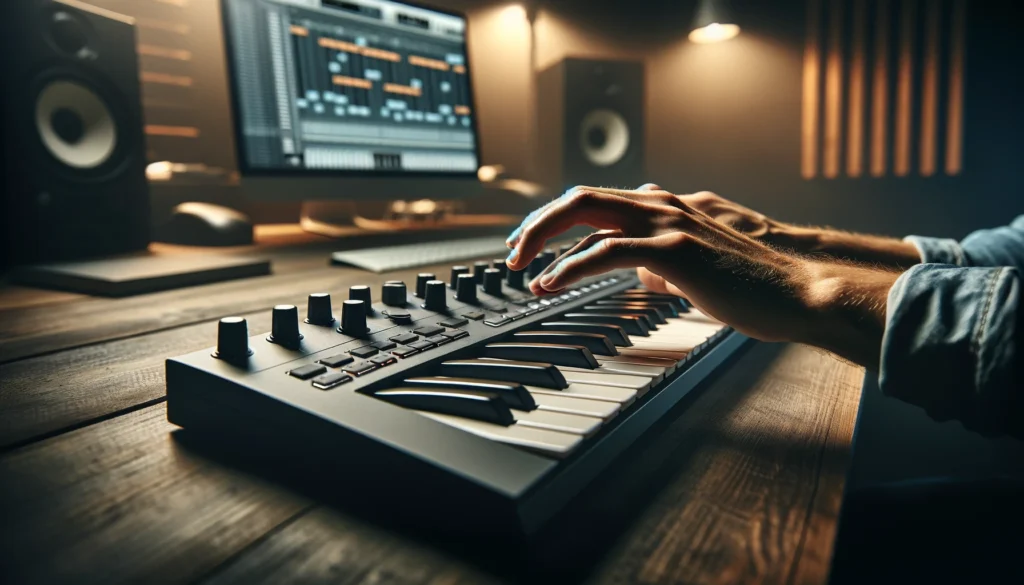
In short, it depends.
For prolific MIDI/electronic music producers and performers, a dedicated MIDI controller often proves essential for enhanced workflow and creative control.
For singer-songwriters focused on live instruments and vocals, it may be unnecessary.
We’ll explore the pros, cons and recommendations in more depth below.
What is a MIDI Controller?
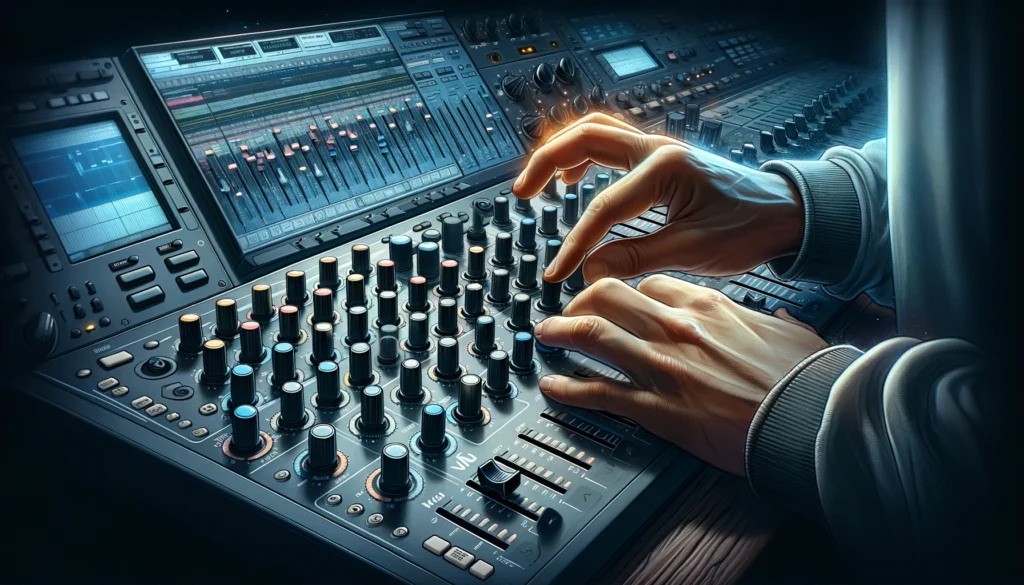
A MIDI controller is a device that allows for physical control of MIDI signals and parameters.
The most common types of MIDI controllers include keyboard controllers, pad controllers, and controllers with knobs, faders, and other controls.
A MIDI controller allows for hands-on control of virtual software instruments and digital audio workstations (DAWS).
Using a MIDI controller enables more expressive performances compared to only using a mouse and computer keyboard when producing music in a DAW.
The tactile feedback and intuitive layouts allow for faster workflows as well by easily manipulating parameters in real time.
MIDI controllers also provide better ergonomics for extended music production sessions versus being hunched over a computer.
Key Benefits of Using a MIDI Controller
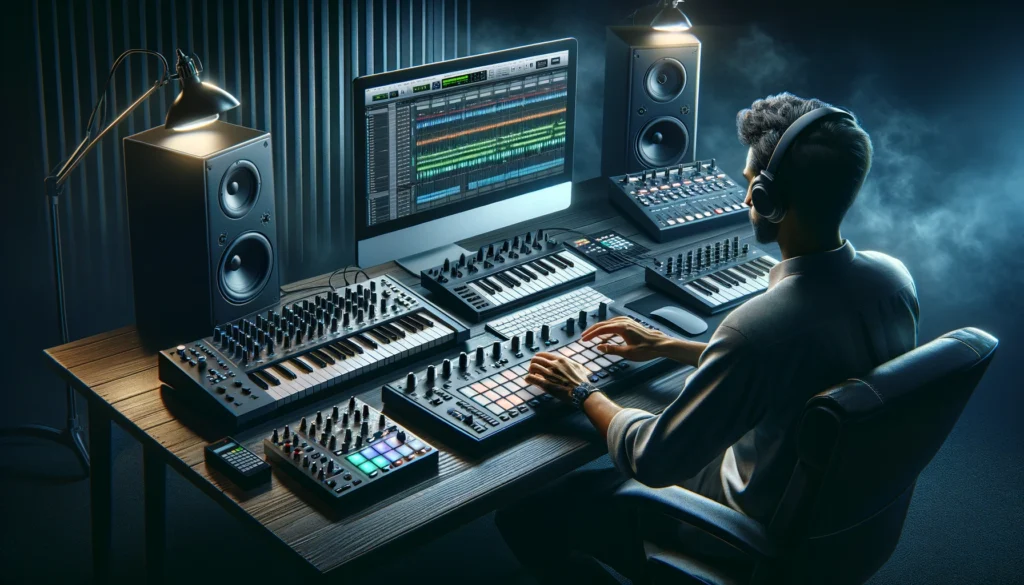
More Expressive Performances
By having physical controls such as keys, pads, knobs, and faders, MIDI controllers allow for more expressive performances than relying on a mouse and computer keyboard.
Dynamics and emotion can be better conveyed through a MIDI keyboard by controlling elements like velocity, pitch bends, modulation, and aftertouch.
Faster Workflow
With hands-on access to mixers, transport controls, and frequently-used software instrument parameters, MIDI controllers enable faster music production workflows.
Tweaking a software synthesizer sound is much faster grabbing a cutoff knob than clicking through menus with a mouse.
This helps producers work more efficiently.
Better Ergonomics
Staring at a computer screen and using a mouse/keyboard exclusively can strain the body after long production sessions.
MIDI controllers provide better ergonomics by offering a tactile production experience.
The layouts allow for a more natural feel to record musical parts, edit software instruments, and mix tracks.
This can prevent injuries.
Humanization of Performances
Since MIDI performances are generated by a person manipulating controls in real-time, they better capture the organic nuances and “human feel” compared to quantized, computer-generated performances.
The subtle timing and velocity changes make productions feel less robotic/sterile.
When a MIDI Controller Makes Sense
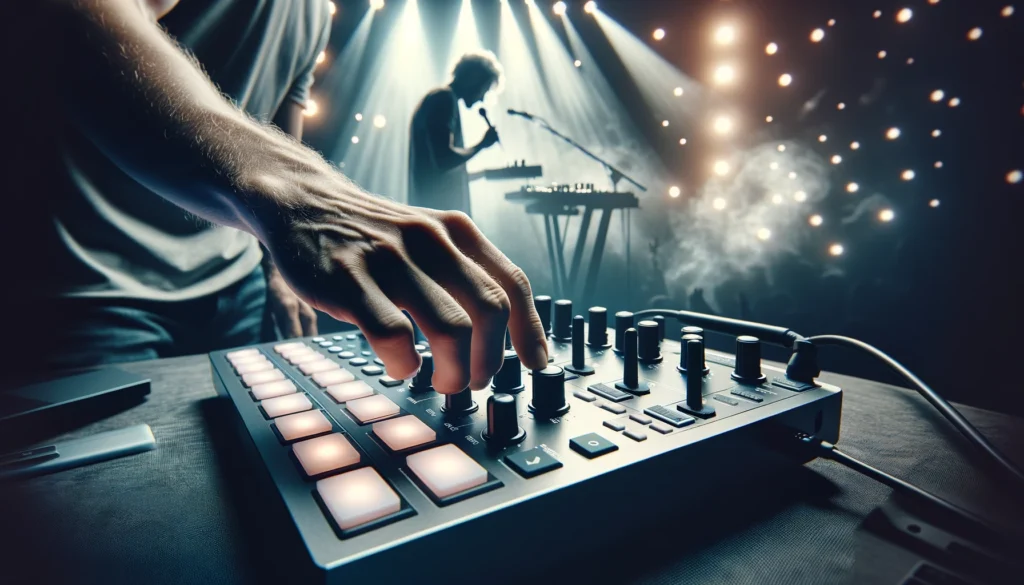
Heavy MIDI Production
For producers who record a lot of MIDI data for virtual instrument tracks, a MIDI controller can be an indispensable tool in the studio.
The tactile control over software synthesizers and ability to capture natural performances is extremely beneficial.
For those who utilize MIDI in their production workflow, a controller is highly recommended.
Electronic Music Production
For any type of hands-on electronic music production in a digital audio workstation, a MIDI controller can be beneficial.
The ability to sculpt sounds, manipulate FX parameters, mix tracks, and otherwise control a DAW makes creating electronic music feel more natural and intuitive versus only using a mouse and keyboard.
Performance
For performers of electronic music genres, MIDI controllers open up more creative options to build sets and manipulate sounds on the fly.
Controllers like the AKAI APC40, Native Instruments Traktor Kontrol S4, and Novation Launchpad make it possible to launch samples/clips, trigger FX, and creatively remix tracks live during a show.
The tactile control unlocks additional creative possibilities.
STEM Mixing
While mixing and editing audio recordings, some producers enjoy the hands-on control of a MIDI controller for adjusting mix parameters.
Controllers may offer motorized faders, customizable knobs/buttons, and tactile navigation of the timeline, simplifying key mixing tasks.
Manipulating a physical mixer can provide a better overall feel versus only mouse/keyboard.
When it Might be Overkill
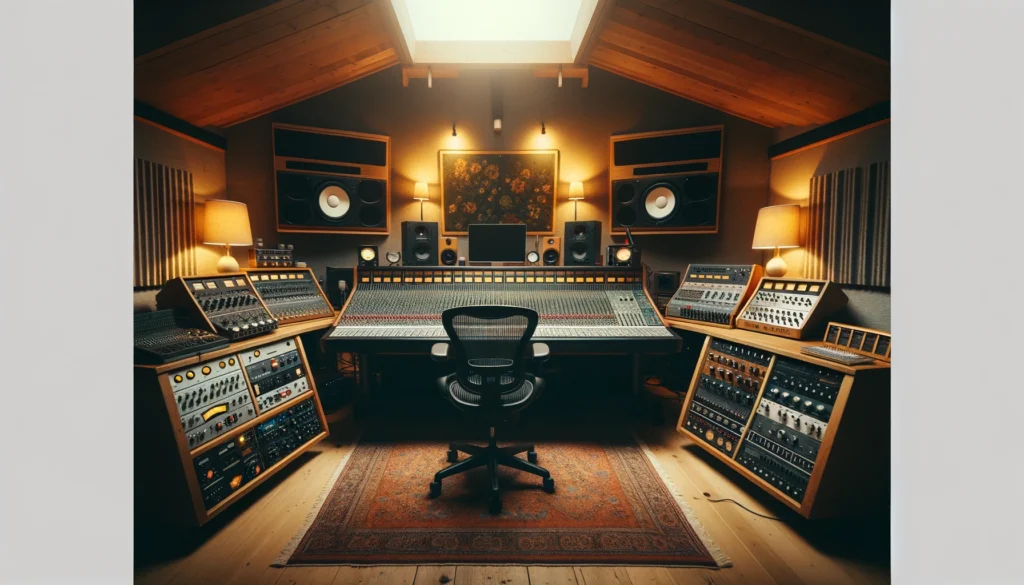
Mainly Recording Live Instruments
For producers who focus on recording live instruments and vocals using microphones and external instruments, investing in a MIDI controller may be overkill depending on the workflow.
While potentially useful for virtual instrument overdubs/sweetening, the recording process won’t benefit significantly from MIDI control.
Primarily Mixing/Mastering
During the mixing and mastering stage, the majority of work revolves around editing/processing raw audio rather than generating new MIDI performances.
Precision tools like a mouse/keyboard tend to suffice for surgical EQing, compression, and time-based effects processing versus real-time MIDI manipulation, making a controller unnecessary.
Limited Gear Budget
For producers on a tight budget, money may be better allocated towards critical recording equipment (DAW, audio interface, monitors/headphones, microphones, etc.) before investing in a MIDI controller.
Building up the fundamental gear required for production should take priority if funds are limited when first starting out.
Production Basics Still Being Learned
Some newcomers to music production jump into purchasing lots of gear before properly learning the fundamentals.
Until the basics of their DAW and tools are understood, buying an advanced MIDI controller can actually hamper the learning process.
Focusing purely on core concepts first is wise.
Recommendations by Budget
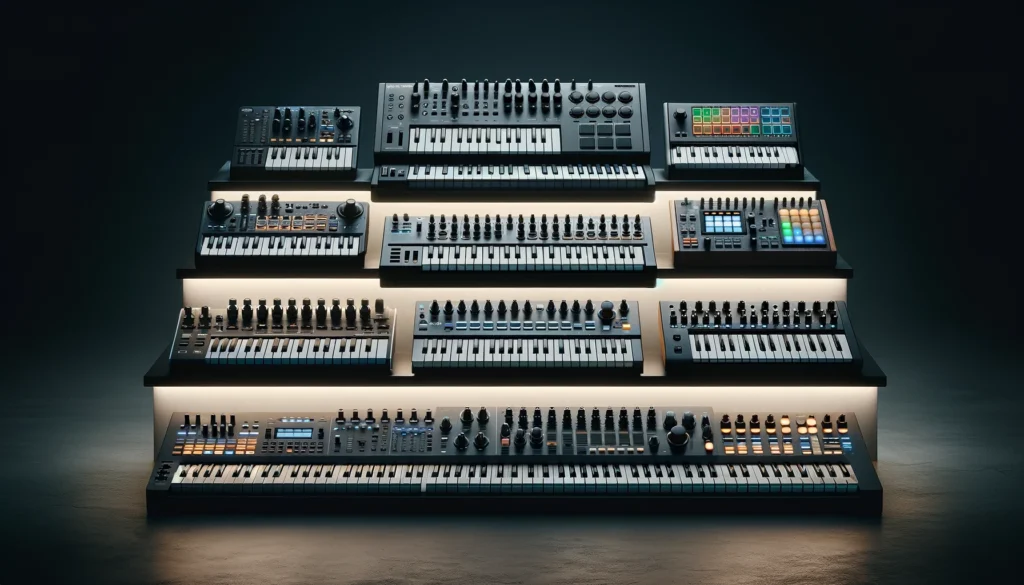
Best Cheap Options Under $100
There are quality MIDI keyboard options available for under $100 such as the AKAI LPK25.
While cheap keys tend to be mini-sized with limited controls, they allow producers to start experimenting with MIDI manipulation versus only using mouse/keyboard.
The Arturia Minilab mkII also packs a surprising amount of controls into an affordable device.
Most Popular From $100-$300
In the mid-range price point from around $100-$300, most full-size 49-61 key MIDI keyboard controllers fall.
This segment offers outstanding quality, key-beds, and feature sets.
Leading picks are the Native Instruments Komplete Kontrol S-Series, Arturia KeyLab mkII 49/61, Novation Launchkey, and Alesis V-Series.
Pro-Level Picks for $300+ Budgets
On the high-end, pro-level MIDI keyboards jump up in build quality, key action, and technology integration.
Top-of-the-line picks above $300 include Native Instruments Komplete Kontrol S88 MK2, Arturia KeyLab 88, Roli Seaboard Rise/Block, and Roland A-88.
Investing more yields advanced hybrid piano-style keys with aftertouch and tight software integration.
Find The Midi Controller That Most Suit You Here:
Conclusion
In summary, while not always essential, using a dedicated MIDI controller provides tangible benefits for many producers’ and electronic musicians’ workflows versus only relying on mouse/keyboard input.
The tactile control unlocks more creative possibilities.
When purchasing a controller, properly identify needs and budget tradeoffs based on the intended use case and production style.
With robust options at all levels, MIDI controllers make an excellent addition for taking music production abilities to the next level.
